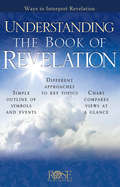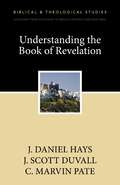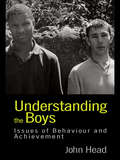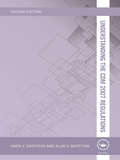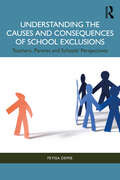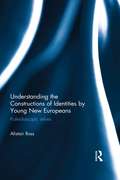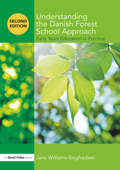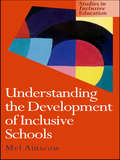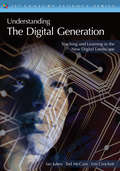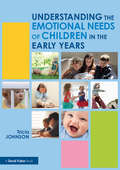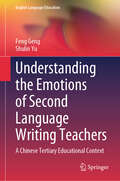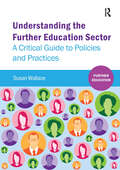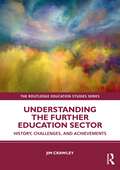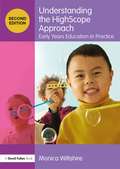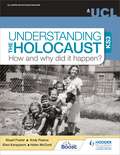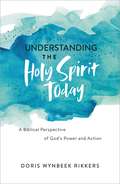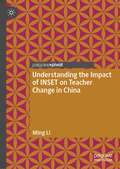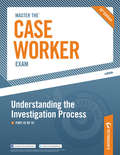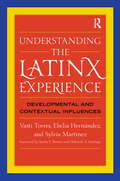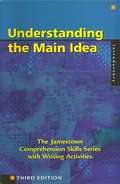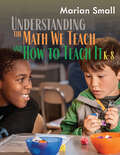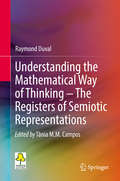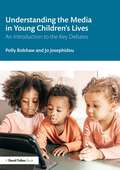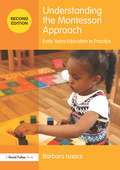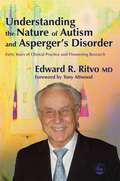- Table View
- List View
Understanding the Book of Revelation
by Rose PublishingUnderstanding the Book of Revelation is an excellent Christian booklet with Revelation Bible charts that explain the symbols. Includes definitions, symbols, ways of approaching the text, and different interpretations. Understanding the Book of Revelation eBook is a basic guide to Bible prophecy.Revelation Bible Symbols Explained:*The 7 Seals*The 7 Churches*144,000*Mark of the Beast*666*Persecuted Woman*The 7 Trumpets*The 7 Bowls*Great Prostitute*Fall of Babylon*New Creation - New Heaven and New Earth*Millennium*Healing of the nationsDifferent Ways to Read the Book of Revelation:*Historicist - Revelation is prophecy about church history from the time of John to the end of the world.*Preterist - Revelation is prophecy that was fulfilled primarily in the first century AD.*Futurist - Revelation is prophecy primarly about the future end of the world.*Idealist - Revelation is a non-historical and non-prophetic drama about spiritual realities.
Understanding the Book of Revelation: A Zondervan Digital Short
by J. Daniel Hays J. Scott Duvall C. Marvin PateInformative and non-sensationalistic, Understanding the Book of Revelation explores the literary genre and historical situation and purpose of Revelation, along with interpretive approaches to it. This digital short also includes an outlined overview of the book’s content and reflections on its overarching theological message. Easy to read but substantiated by solid scholarship and biblical study, Understanding the Book of Revelation is a handy reference tool for personal Bible study or Bible teachers tackling this admittedly difficult book of the Bible. This short is derived from a longer resource entitled the Dictionary of Biblical Prophecy and End Times.
Understanding the Boys: Issues of Behaviour and Achievement
by John Head Dr John HeadDo you know what makes boys tick? In recent years suicide has drastically escalated among young males and academic underachievement is common, so it is of vital importance that our understanding of the young male psyche is well informed and not merely 'received wisdom'. John Head gets to the heart - and mind - of the matter, by tackling difficult, pertinent questions. Has male behaviour in school worsened, or has media hype inflated the proportions of a 'good story'? What is at the root of male violence? Are biological or social explanations telling the whole story? Head shows that it is only by engaging boys in new arenas of thought and feeling that we can hope to understand and help overcome the difficulties faced by boys today.Essential reading for teachers, headteachers, researchers in education, gender, youth, community and social workers.
Understanding the CDM 2007 Regulations (Understanding Construction)
by Owen Griffiths Alun GriffithsAlmost 3000 lives have been lost in the UK construction industry over the last twenty-five years, in addition to those seriously injured or made ill. The need to reduce this rate has required tight controls to be introduced throughout the planning and management of construction projects in the UK. The Construction (Design and Management) Regulations 2007 outline the responsibilities and liabilities for the various professionals and agents involved. Straightforward and practical, Understanding the CDM 2007 Regulations demonstrates the rationale behind the regs, covers the duties of the five core duty holders (client, CDM coordinator, designer, principal contractor and contractor), explains the importance of the hazard management process on every project and also sets out the consequences of failing to successfully plan, design and manage for safety. Any client, architect, engineer, CDM co-ordinator, project manager, construction professional, or student will find this a simple but thorough and dependable guide and should value the management toolkit and the numerous practical examples of best practice and guidance on how to use the Approved Code of Practice appropriately. This book shows how to unleash the potential of the regulations and add real value to the industry.
Understanding the Causes and Consequences of School Exclusions: Teachers, Parents and Schools' Perspectives
by Feyisa DemieThis book outlines a study of the causes and consequences of school exclusions. It explores the experiences of schools, teachers, parents, and governors and includes a focus on the experience of Black and minority ethnic students and those with special educational needs and disabilities. The book presents the results of detailed empirical research from English schools that studied teachers, school leaders, parents, governors, educational psychologists, and school staff experience with school exclusions. The book examines the scale of the problem and underlying factors, the disproportionality of exclusions for SEND and minority ethnic students, comparative international literature on exclusions and implications for policy, practice, and research. Providing a comprehensive overview of the factors affecting school exclusions, the book will be of great interest to researchers, academics, and students in the areas of education policy, inclusion and special education needs in education. It will also be of interest to policy makers and education professionals including special educational needs co-ordinators and headteachers.
Understanding the Constructions of Identities by Young New Europeans: Kaleidoscopic selves
by Alistair RossHow do young people construct their identities in the complexity of their own country, belonging to the European Union, and being part of global society? This book is based on a unique empirical study of a thousand young people, aged between eleven and nineteen, from fifteen European countries. Covering East European states that joined the EU be
Understanding the Danish Forest School Approach: Early Years Education in Practice (Understanding the… Approach)
by Jane Williams-SiegfredsenThis fully revised edition of Understanding the Danish Forest School Approach is a much needed source of information for those wishing to extend and consolidate their understanding of the Danish Forest School Approach. It enables analysis of the essential elements of this particular approach to early childhood teaching and the relationship it holds with quality early years practice. Describing the key principles of the Forest School Approach to early childhood, and heavily supported with practical examples and case studies, each chapter ends with highlighted key points, followed by reflections on practice to aid discussion and reflection on own practice. Including a new chapter on the curriculum, this text explores all aspects of the approach including: The geographical, historical, social and cultural influences that have shaped the philosophy and pedagogy of the early years setting in Denmark. The people and theories that have influenced and supported the practices of using the outdoors with children. An analysis of the learning environments, their risks and challenges and what a learning environment is made up of. The Danish early years curriculum; the areas of learning and the way pedagogues facilitate the learning processes. Parental, political and research perspectives on the approach and the sustainability of its future. Understanding the Danish Forest School Approach highlights the key ideas that practitioners should consider when reviewing and reflecting on their own practice, and outlines the national appraisals and evaluations of the curriculum. Providing students and practitioners with key information about a major pedagogical influence on early years practice, this is a vital text for students, early years and childcare practitioners, teachers, early years professionals, children’s centre professionals, lecturers, advisory teachers and setting managers.
Understanding the Development of Inclusive Schools (Studies In Inclusive Schools Ser.)
by Mel AinscowThe current emphasis on individualised intervention programmes for students with special needs may not only be impractical, but also undesirable. This book compares and contrasts special needs approaches with school effectiveness strategies. The author sets out theories about inclusive schooling that arise out of a detailed scrutiny of practice. The link between theory and practice will be welcomed by many practitioners. With extensive examples from the field to illustrate Ainscow's ideas, this is an eminently accessible text.
Understanding the Digital Generation: Teaching and Learning in the New Digital Landscape
by Ian Jukes Lee Crockett Ted McCainAn innovative look at reshaping the educational experiences of 21st-century learners! Inspiring thoughtful discussion that leads to change, this reader-friendly resource examines how the new digital landscape is transforming teaching and learning in an environment of standards, accountability, and high-stakes testing and why informed leadership is so critical. The authors present powerful strategies and compelling viewpoints, underscore the necessity of developing relevant classroom experiences, and discuss: Attributes common among digital learners; The concepts of neuroplasticity and the hyperlinked mind; An educational approach that supports traditional literacy skills alongside 21st-century fluencies; Evaluation methods that encompass how digital generation students process new information.
Understanding the Emotional Needs of Children in the Early Years
by Tricia JohnsonThis accessible book focuses on the emotional needs, experiences and development of young children, exploring the role of the practitioner in ensuring that each and every child feels loved, supported and safe; able to develop secure attachments and flourish in the first five years and beyond. Drawing upon neuro-scientific research and referencing key theories relating to attachment, and health and wellbeing, the book examines the responsibilities of the early years practitioner in supporting children to reach their full potential. The response of the adult to the emotional needs of individual children is analysed in detail, and the impacts of various experiences, cultures and contexts on a child’s emotional wellbeing are considered. With topics including safeguarding, communication, the physical environment, neurological development and Attachment Theory, readers will: learn how to respond appropriately to individual children extend their role as a Key Person and their position in a multi-professional team increase their understanding of the interaction between home and childcare settings reflect on the importance of in-depth observation, the environment and quality of care provided in their settings. Supported by rich case studies, provocations and examples of good practice to encourage reflection and improve future practice, Understanding the Emotional Needs of Children in the Early Years is an engaging and comprehensive guide for all early years practitioners, early years students and professionals including paediatric nurses, health visitors and social workers.
Understanding the Emotions of Second Language Writing Teachers: A Chinese Tertiary Educational Context (English Language Education #40)
by Shulin Yu Feng GengThis book incorporates both practice-based information and research to underpin teachers' emotions in the teaching and learning settings of second language (L2) writing, in the Chinese tertiary educational context. It introduces and validates a new conceptual framework for evaluating the causes and effects of the emotions of L2 writing teachers and investigates their emotional experiences in the context of the classroom. Additionally, it demonstrates the mediating effect of emotion-regulation strategies on L2 writing teachers’ pedagogical practices, writing assessment practices, teacher–student relationships, and well-being. Finally, this book provides theoretical, practical, and pedagogical implications of emotion regulation and management in order to implement the L2 writing curriculum.
Understanding the Further Education Sector: A critical guide to policies and practices (Further Education)
by Susan WallaceThose working towards QTLS are required to demonstrate a critical understanding of the Further Education (FE) sector and the role of the FE practitioner. This book clearly identifies, particularly for the student teacher with no prior experience, the social, cultural and political context of the sector’s beginnings and explores how this continues to shape and constrain the sector’s status and purpose, and the role and status of its teachers. The text encourages critical thinking about possible routes for change and future development. As increasing numbers of QTLS students are being encouraged to gain part of their qualification at M level, the need for an accessible and critical sourcebook about the FE sector, such as this, is essential.
Understanding the Further Education Sector: History, Challenges, and Achievements (The Routledge Education Studies Series)
by Jim CrawleyFocusing on a less well-known area of education, the Further Education (FE) sector, this book provides education studies students a chance to provoke reflection, analysis, and understanding, as well as personal and professional development in the area. Jim Crawley brings over 40 years’ experience working in or with the FE sector, reflected in his committed and passionate approach alongside carefully balanced academic analysis and discussion.This book covers subsectors of FE including colleges, skills for life, work-based learning, and offender learning and cross-sector themes such as working and managing, social justice, equality, diversity, and sustainability. This book also supports independent study and complements other topics and themes across an education studies degree.This book is perfect for new and existing students of education studies, joint honours courses, teacher training, and those researching for a master’s degree or doctorate. It is the definitive text in the field and ideal for anyone wanting to further their understanding of the FE sector.
Understanding the HighScope Approach: Early Years Education in Practice (Understanding the… Approach)
by Monica WiltshireUnderstanding the HighScope Approach is a much-needed source of information for those wishing to extend and consolidate their understanding of this innovative education programme. It will enable the reader to analyse the essential elements of the HighScope approach to early childhood and its relationship to high-quality early years practice.This second edition contains all the original content, which covers all areas of the curriculum including learning environment, plan-do-review, adult-child interaction and assessment, but has been updated to be fully in line with the latest changes to research, policy and practice. New topics and features include: ■ outdoor play and learning ■ using the HighScope approach with children with special needs and who speak English as an additional language ■ managing the approach with bigger class sizes ■■the implementation of technology with children in HighScope settings ■ a selection of new photographs Written to support the work of all those in the field of early years education and childcare, this is a vital text for students, early years and childcare practitioners, teachers, early years professionals, children’s centre professionals, lecturers, advisory teachers, head teachers and setting managers.
Understanding the Holocaust at KS3: How and why did it happen?
by Professor Stuart Foster Dr Andy Pearce Dr Eleni Karayianni Helen McCordIn 2016 the UCL Centre for Holocaust Education published a landmark study, What do students know and understand about the Holocaust? Almost 10,000 students aged 11 to 18 participated in the research. It was the largest of its kind anywhere in the world. The study indicated that the vast majority of young people found the subject interesting and relevant. However, it also revealed that many students did not have clear knowledge and understanding of the Holocaust.Written in direct response to the findings of the 2016 national study, this textbook significantly improves understanding of the Holocaust by:> Providing you with an appropriate historical overview of key aspects of the Holocaust> Helping you to understand the long-standing hatred of Jews (i.e., the roots of antisemitism)> Deepening your knowledge and understanding of the Holocaust > Encouraging you to challenge common myths and misconceptions (e.g., that Hitler was solely responsible for the Holocaust)> Developing your understanding of key historical concepts (e.g., evidence, interpretation, causation, significance)> Enabling you to answer the big historical question: How and why did the Holocaust happen? > Helping you to appreciate the impact of the Holocaust on ordinary people across Europe> Inviting you to consider the importance of the Holocaust and its significance todayThis textbook is supported by additional materials and teacher guidance notes on the UCL Centre for Holocaust Education website (holocausteducation.org.uk).The original design, development and distribution of this textbook was funded by the Toni Schiff Memorial Fund and the Pears Foundation. The Centre is enormously grateful for their support. The Wiener Holocaust Library also provided considerable assistance in developing the textbook.
Understanding the Holy Spirit Today: A Biblical Perspective of God's Power and Action
by Doris Wynbeek RikkersGet a better understanding of the Holy Spirit and why the Spirit of God is as relevant today as in Biblical times.Many who are very familiar with God, the Father, and Jesus, the Son, have far less understanding of God's Spirit. This easy-to-follow guide explains what the stories of the Bible reveal about the Holy Spirit. Doris Rikkers highlights characters and scenes from the Bible that show the Spirit at work, both in the Old Testament and the New Testament. Every story includes application for today. Learn the who, what, where, when and how of God's Spirit. Presented in lively narrative, UNDERSTANDING THE HOLY SPIRIT TODAY communicates biblical truth that will empower and uplift.
Understanding the Impact of INSET on Teacher Change in China
by Ming LiThis pivot considers the impact of INSET courses on EFL teachers practicing under the national curriculum reform in China. Providing context-specific findings on the policy and implementation of INSET as well as its impact on teacher education initiatives in both China and similar contexts, it explores the limitations of one off training events such as INSET and the inconsistency between teacher learning results and their classroom practices. The book argues that teachers, when returning to pre-INSET teaching, are influenced by their prior deeply-rooted beliefs largely considered more powerful than newly-learnt theories. Addressing the rarely discussed fact that the complex and dynamic characteristics of teacher learning change over time and support the construct of teacher learning as a social event rather than a one-off event, the book also offers practical solutions on how to improve teacher education and enhance the long-term INSET impact on teacher development, with the ambition of promoting education reform for both teachers and students alike.
Understanding the Investigation Process
by PetersonPeterson’s Master the Case Worker Exam: Understanding the Investigation Process helps you understand the investigation process, especially the responsibilities of the social investigator, the intake process, and what happens during and after the investigation. Investigating a client’s eligibility for public financial assistance and services is an important aspect of a case worker’s job.For more information see Peterson's Master the Case Worker Exam.
Understanding the Latinx Experience: Developmental and Contextual Influences
by Vasti Torres Ebelia Hernández Sylvia MartinezThe Latino presence continues to grow in traditional population enclaves and has tripled in areas that are not traditionally associated with this pan-ethnic group. The dramatic growth of this population in the U.S. requires a considerably deeper understanding of individuals that share this multifaceted identity. This timely book synthesizes new research and its implications for practice that is critical for professionals working with Latinos in educational and counseling contexts. The authors provide insight into identity development, environmental influences, and how these factors influence persistence in higher education. By using a synthesis approach to organize multiple studies around how being Latinx influences the experiences of students in college and beyond, the authors offer a holistic view of the Latino population. Each chapter uses mixed method data points to highlight the experiences of this growing population and provide helpful insights for those who work with Latinx individuals within higher education and community settings. The new Lifespan Model of Latinx Ethnic Identity Development constitutes a framework to consider the development and tensions experienced by Latinos as they engage with the various cultures represented within U.S. society. The studies presented in this book provide an evidence-based understanding how environmental differences may produce differing levels of development for college students and how change in environments produce reflective refinement of adult Latinx identity. Practitioners will learn about practices that help Latinx college students. Faculty and researchers will gain new understandings of the Latinx experience, and discover a starting point for further reflection and investigation.
Understanding the Main Idea (The Jamestown Comprehension Skills Series)
by McGraw-Hill - Jamestown Education StaffThis innovative program helps students devote effort to only those specific comprehension skills that give them trouble. The computerized testing system diagnoses weaknesses and prescribes proper placement in Comprehension Skills books. While the computer manages the data, you can concentrate on instruction, expanding comprehension skills with a five-part lesson plan proven to succeed. Computerized follow-up testing tracks progress by comparing "before" and "after" results.
Understanding the Math We Teach and How to Teach It, K-8
by Marian SmallDr. Marian Small has written a landmark book for a wide range of educational settings and audiences, from pre-service math methods courses to ongoing professional learning for experienced teachers. Understanding the Math We Teach and How to Teach It, K-8 focuses on the big mathematical ideas in elementary and middle school grade levels and shows how to teach those concepts using a student-centered, problem-solving approach. Comprehensive and Readable: Dr. Small helps all teachers deepen their content knowledge by illustrating core mathematical themes with sample problems, clear visuals, and plain language Big Focus on Student Thinking: The book's tools, models. and discussion questions are designed to understand student thinking and nudge it forward. Particularly popular features include charts listing common student misconceptions and ways to address them, a table of suggested manipulatives for each topic, and a list of related children's book Implementing Standards That Make Sense: By focusing on key mathematics principles, Understanding the Math We Teach and How to Teach It, K-8 helps to explain the "whys" of state standards and provides teachers with a deeper understanding of number sense, operations, algebraic thinking, geometry, and other critical topics Dr. Small, a former dean with more than 40 years in the field, conceived the book as an essential guide for teachers throughout their career: "Many teachers who teach at the K-8 level have not had the luxury of specialist training in mathematics, yet they are expected to teach an increasingly sophisticated curriculum to an increasingly diverse student population in a climate where there are heightened public expectations. They deserve help."
Understanding the Mathematical Way of Thinking – The Registers of Semiotic Representations
by Raymond DuvalIn this book, Raymond Duval shows how his theory of registers of semiotic representation can be used as a tool to analyze the cognitive processes through which students develop mathematical thinking. To Duval, the analysis of mathematical knowledge is in its essence the analysis of the cognitive synergy between different kinds of semiotic representation registers, because the mathematical way of thinking and working is based on transformations of semiotic representations into others. Based on this assumption, he proposes the use of semiotics to identify and develop the specific cognitive processes required to the acquisition of mathematical knowledge. In this volume he presents a method to do so, addressing the following questions:• How to situate the registers of representation regarding the other semiotic “theories” • Why use a semio-cognitive analysis of the mathematical activity to teach mathematics • How to distinguish the different types of registers • How to organize learning tasks and activities which take into account the registers of representation • How to make an analysis of the students’ production in terms of registersBuilding upon the contributions he first presented in his classic book Sémiosis et pensée humaine, in this volume Duval focuses less on theoretical issues and more on how his theory can be used both as a tool for analysis and a working method to help mathematics teachers apply semiotics to their everyday work. He also dedicates a complete chapter to show how his theory can be applied as a new strategy to teach geometry.“Understanding the Mathematical Way of Thinking – The Registers of Semiotic Representations is an essential work for mathematics educators and mathematics teachers who look for an introduction to Raymond Duval’s cognitive theory of semiotic registers of representation, making it possible for them to see and teach mathematics with fresh eyes.”Professor Tânia M. M. Campos, PHD.
Understanding the Media in Young Children’s Lives: An Introduction to the Key Debates
by Polly Bolshaw Jo JosephidouThis book explores the impact of digital media on young children’s lives and the role that the media and news industries play in the social construction of childhood. It highlights the pressing issues relating to young children’s media use drawing on key research and examines the impact of digital media on their learning, development and socialization. The chapters recognise the challenges digital media presents children and families, but also demonstrate how media use and engagement can have a positive impact on children’s academic attainment, social capital and opportunities to create and curate online content. Covering key areas of concern such as safety, violence and children’s mental health, the authors provide strategies to help children and families reduce the risks that can arise with digital media use and capitalise on the opportunities it can offer. Including case study examples and opportunities for reflective practice, this is an essential text for students on Childhood and Early Childhood Studies courses and Early Years Foundation Degrees as well as practitioners wanting to develop their critical understanding of the role of the media in young children’s lives.
Understanding the Montessori Approach: Early Years Education in Practice (Understanding the… Approach)
by Barbara IsaacsUnderstanding the Montessori Approach is a much-needed source of information for those wishing to extend and consolidate their understanding of the Montessori Approach and how it is used in the teaching and learning of young children. The book will enable the reader to analyse the essential elements of this Approach to early childhood and and its relationship to quality early years practice. This second edition has been fully updated to reflect changes in the Early Years Foundation Stage and includes a fresh examination of the relationship between technology and the Montessori approach, as well as a brand new chapter, Learning in Montessori Settings. Exploring all areas of the curriculum including the organisation of Montessori schools, the environment, learning and teaching and the outcomes for children, this book: examines the historical context of the Montessori approach and its relevance to modern-day education; explores Montessori's views of child development and the role of the learning environment in a child’s educational development; details the organisation of Montessori schools worldwide and the structure of a typical day in a Montessori setting; highlights the principles of Montessori pedagogy, including the tools and strategies employed by its practitioners; considers how and what children learn in a Montessori setting and the links with EYFS 2017; includes new benefits and challenges of the Montessori approach to children's lives. Understanding the Montessori Approach provides an accessible overview of this major pedagogical influence on early years practice, supported by case studies, examples, summaries and reflective practice questions. This new edition not only highlights the core ideas that practitioners should consider when reviewing and reflecting on their own practice, but accomodates revisions to educational curriculum and policy in order to serve as an invaluable resource for students and practitioners alike.
Understanding the Nature of Autism and Asperger's Disorder: Forty Years of Clinical Practice and Pioneering Research
by Anthony Attwood Edward R RitvoEdward R. Ritvo md is an internationally recognized medical expert, researcher and pioneer in the field of autism and Asperger's disorder and co-author of the official diagnostic criteria in the DSM (Diagnostic and Statistical Manual of Mental Disorders). Much of what is known about these disorders today is based on his painstaking research and groundbreaking discoveries. In this book he shares his forty years' experience and opens his extensive UCLA casebook to the reader. Understanding the Nature of Autism and Asperger's Disorder is 'a consultation with Prof. Ritvo' - a thoroughly accessible introduction for professionals, families, spouses and individuals with autism and Asperger's Disorder. Prof. Ritvo traces the historical development of understanding about autism and Asperger's Disorder, from the centuries of misdiagnoses and the first recognition of the characteristics of the disorders to his own highly-regarded methods for making a diagnosis. Drawing on case histories from forty years' of clinical practice, he explains their basic nature, what the causes are, what is different in the brain, treatments that work (and those that don't), what a child with a diagnosis might be like when he or she grows up, and what future research may hold. This book will be an absolute must-read for anyone with an interest in autism and Asperger's Disorder, whether a practitioner, a parent, a student, or an affected individual.
